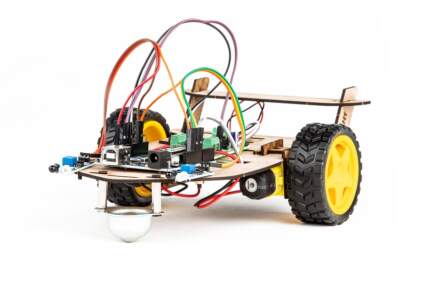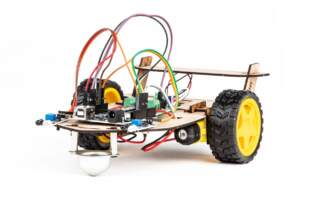Childhood is a pivotal period in a human’s life, characterized by rapid growth and learning. Understanding children’s psychology is essential in unlocking the secrets to their emotional and cognitive development. This knowledge equips parents, educators, and caregivers with the tools necessary to foster an environment conducive to healthy growth. This article explores key aspects of children’s emotional and cognitive development and their implications for nurturing well-rounded individuals.
The Foundations of Child Psychology
At its core, child psychology examines how children think, feel, and behave. It incorporates several fields, including developmental psychology, educational psychology, and clinical psychology. Each area offers insights into the various stages of childhood and the factors influencing development.
The Stages of Development
One of the most influential figures in child psychology is Jean Piaget, who proposed that children progress through distinct stages of cognitive development. These stages include:
-
Sensorimotor Stage (Birth to 2 years): At this stage, children learn about the world through their senses and actions. They develop object permanence and begin to understand that objects continue to exist, even when they cannot be seen.
-
Preoperational Stage (2 to 7 years): Children begin using language to explore and understand their world, but their thinking is still intuitive and egocentric. They struggle with concepts like conservation and may have difficulty understanding others’ perspectives.
-
Concrete Operational Stage (7 to 11 years): Logical thinking emerges as children begin to grasp concrete concepts. They can categorize objects and understand sequences, though abstract thought remains challenging.
- Formal Operational Stage (12 years and up): Adolescents develop the ability to think abstractly and reason systematically. This stage allows for hypothetical thinking and problem-solving.
Understanding these stages helps parents and educators tailor their approaches to suit children’s cognitive capabilities, enhancing learning experiences.
Emotional Development: The Building Blocks of Resilience
While cognitive development is essential, emotional development plays a crucial role in a child’s overall well-being. Emotional development encompasses the ability to recognize, understand, express, and manage emotions. Several theorists, including Erik Erikson and John Bowlby, have contributed significantly to our understanding of this region of psychology.
Attachment Theory and Its Impact
John Bowlby’s attachment theory highlights the importance of early relationships. The bond between a child and caregiver establishes a framework for social and emotional development. Secure attachment—formed when caregivers are responsive and sensitive to a child’s needs—promotes confidence, emotional regulation, and healthy relationships later in life. Conversely, insecure attachment can lead to difficulties in emotional and social functioning.
Emotional Intelligence in Childhood
An essential component of emotional development is emotional intelligence (EI), which refers to the ability to perceive, use, understand, and manage emotions. According to psychologist Daniel Goleman, EI is just as crucial as academic intelligence in determining success in life. Children with high emotional intelligence tend to display better social skills, higher self-esteem, and greater resilience.
Parents can nurture EI by:
-
Encouraging emotional expression: Create a safe environment for children to express their feelings and assure them that experiencing emotions is normal.
-
Modeling emotional regulation: Adults can demonstrate how to manage their emotions constructively, guiding children in learning these skills.
- Teaching empathy: Help children appreciate others’ feelings and perspectives, fostering connections and reducing conflicts.
The Role of Environment in Child Development
While genetic factors contribute to a child’s psychological makeup, the environment equally plays a critical role in shaping emotional and cognitive development. The concept of the bioecological model proposed by Urie Bronfenbrenner emphasizes the importance of various environmental systems—microsystems (family, school), mesosystems (interactions between microsystems), exosystems (influences from external environments), and macrosystems (cultural context)—in a child’s development.
The Impact of Parenting Styles
Research has identified four primary parenting styles: authoritative, authoritarian, permissive, and neglectful. The authoritative style, characterized by warmth and structure, typically leads to the best outcomes in children’s emotional and cognitive development. In contrast, authoritarian and neglectful styles may result in increased levels of anxiety and behavioral problems in children.
The Importance of Play
Play is another vital component of healthy development. According to the American Academy of Pediatrics, play facilitates cognitive, social, and emotional growth. It encourages creativity and problem-solving skills while providing opportunities for social interactions. Engaging children in various types of play—structured and unstructured—supports their overall psychological development.
Conclusion
Understanding children’s psychology is fundamental in unlocking the secrets to their emotional and cognitive development. By recognizing and supporting the unique stages of growth, fostering emotional intelligence, and creating nurturing environments, caregivers can play an integral role in shaping resilient, capable individuals. Ultimately, investing in children’s psychological health not only benefits them but contributes to a brighter, more empathetic society. Emphasizing emotional well-being alongside cognitive development ensures that children are equipped to navigate life’s challenges and thrive both personally and socially.









Leave a Comment